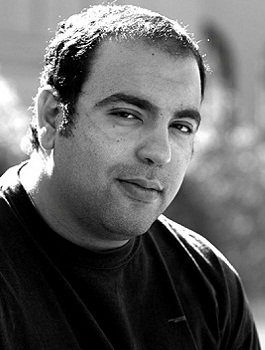By John Drake
LONDON: The terrorists responsible for the New Year attack on an Alexandria church may be intent on stirring up more than just sectarian tensions in one country. They may be trying to crystallize anti-Christian and even anti-western sentiment in the wider Islamic world.
Coptic churches throughout the Middle East, Europe and North America have increased security measures following the attack. Ominous threats and warnings have been posted on Islamist websites and concerns have been raised over possible attacks around Coptic Christmas on Jan. 7.
For many Copts in Egypt, security measures around religious facilities are becoming a more familiar measure. There has been a gradual rise in sectarian clashes in the country over recent years. Many blame the rise in popularity of fundamentalist groups as the main cause of increased tensions. The government is also deemed partially responsible, given that it emphasizes social coherence and unity over diversity in the Arab world’s most populous state.
Christian populations elsewhere in the Middle East have also been attacked in recent months, especially in Iraq. On Oct. 31 a siege at a church in central Baghdad left dozens of Christians dead and an entire community traumatized. The trend has generated an outcry in the west, with attacks around the festive period being regarded as particularly callous. On Jan. 2, Pope Benedict condemned the violence, calling it “vile.”
However, a growing number have questioned whether the west cares about Muslim casualties caught up in similar incidents. Numerous deadly attacks in Iraq, Afghanistan and Pakistan over the course of 2010 generated far less media coverage. Of course these countries see more frequent violence than normally stable Egypt, which makes the Alexandria incident more newsworthy. Nonetheless, comments have been made that the west cares less about Muslim deaths than about Christian ones.
Some have suggested that western concern for Middle East Christians denotes that these Christians are more affiliated with Europe and North America and less with the other communities of the Middle East. These comments have so far been largely anecdotal and are not grounds for concern just yet, but should the sentiment gain momentum it could alienate Christian communities and provide propaganda material for radical terrorist organizations in the region.
Absurd as it may sound, the Christian community could become demonized by more radical groups as an extension of western imperialism in the region. Despite it being one of the oldest communities in the Middle East, threat groups could attempt to distort the Christian image and group them alongside the foreign elements which they class as “crusaders”.
This would polarize communities in the Middle East, creating an “us and them” mentality which in turn makes it easier to recruit new supporters. Furthermore, any rise in sectarian violence in Egypt would mirror a trend seen in Iraq in 2005 and 2006: the security forces would be put under increased strain and would lack the resources needed to clamp down on violent groups. A weakened and stretched police force would create a window of opportunity for such groups to expand their network of support and increase activities such as fundraising, weapons acquisition and attack planning.
If such a scenario is to be avoided it will take strong efforts by community figures to bridge the sectarian gap. Community cohesion and integration such as that seen in Egypt prior to the 1970s will be a far more effective risk mitigating factor than any increase in security guards or checkpoints at churches. However, those spearheading any initiatives aimed at improving inter-communal relations will have to be Egyptian. Any interference from western organizations will likely have a negative effect, even if it has the best of intentions. Foreign influence could be regarded as unwelcome whilst providing radical groups such as Al-Qaeda with further evidence that the west is only concerned with violence affecting Christians, rather than Muslims.
John Drake is a Senior Risk Consultant for security firm AKE. AKE provides security and risk management to international businesses, NGOs and the Media. John is based in London and Baghdad and you can follow his updates on twitter: www.twitter.com/johnfdrake.


